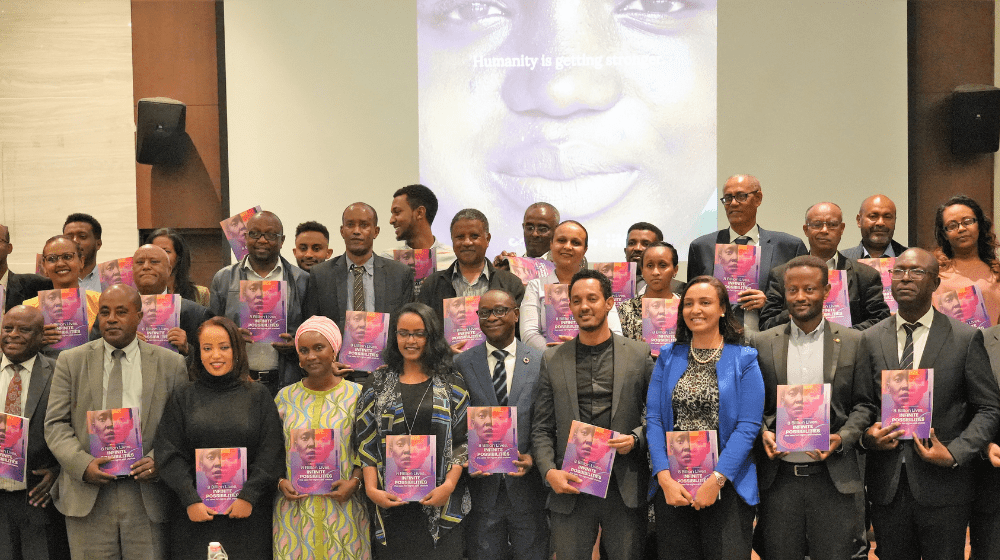A high level event on the national launch of UNFPA’s flagship report, The State of World Population 2023, took place today.
This year the report features a theme entitled “8 Billion Lives, Infinite Possibilities – The Case for Rights and Choices.”
According to the report, new data reveals population anxieties are widespread and governments are increasingly adopting policies aimed at raising, lowering or maintaining fertility rates. But efforts to influence fertility rates are very often ineffective and can erode women’s rights.
Delivering an opening remark on the occasion, H.E. Sandokan Debebe, State Minister of Planning and Development, said population issues have been integrated well into development plans, strategies, programmes at the federal, regional, and sectoral levels in Ethiopia. “The role of ensuring reproductive rights and choices in realizing the potentials and energies of women and girls is tremendous as a necessary condition for harnessing the demographic dividend,” he underlined.
Speaking at the event, Mr. Koffi Kouame, UNFPA Country Representative, highlighted the importance of enabling people to exercise real informed choices over their health, bodies and futures, so they can contribute to more prosperous societies and a more sustainable, equitable, peaceful and just world. He stated “we must forge stronger partnerships to address the multitude of barriers that are denying millions of people their rights and choices in order to create a world of infinite possibilities and inclusive, equitable for a sustainable development.”
The State of World Population 2023 calls for a radical rethinking of how population numbers are framed – urging politicians and media to abandon overblown narratives about population booms and busts. Instead of asking how fast people are reproducing, leaders should ask whether individuals, especially women, are able to freely make their own reproductive choices.
The national launch of the State of World Population 2023 also hosted a panel discussion involving panellists from the Ministry of Planning and Development, a CSO, a youth association and UNFPA.
The event was attended by participants drawn from government and civil society organizations, development partners, UN agencies and other stakeholders.


